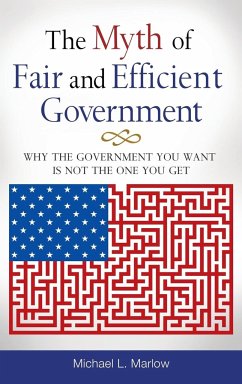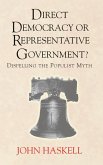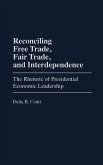A fascinating exposé explaining why the government we have bears so little relation to the government we want-and why the recent expansion of government programs will only exacerbate the problem. Idealized views of government lead to bitterly unhappy citizens posits The Myth of Fair and Efficient Government: Why the Government You Want Is Not the One You Get. In fact, Michael L. Marlow says, government is the last place to look for efficiency. It is, rather, private markets that naturally drive toward efficient outcomes and it is unreasonable to expect governments to mimic those effects. This idea will startle many readers, especially given the widespread belief that private markets caused the current economic problems. The author's intention is to awaken readers to the invalidity of that assumption, to make us "pause before calling upon the government to somehow be efficient and fair in responding to the supposed collapse of private markets." To that end, this book demonstrates why romantic views of government promote a less efficient economy; why so many government programs are inefficient in practice; and why a more limited role for government is critical to reviving trust in our institutions.
Hinweis: Dieser Artikel kann nur an eine deutsche Lieferadresse ausgeliefert werden.
Hinweis: Dieser Artikel kann nur an eine deutsche Lieferadresse ausgeliefert werden.








